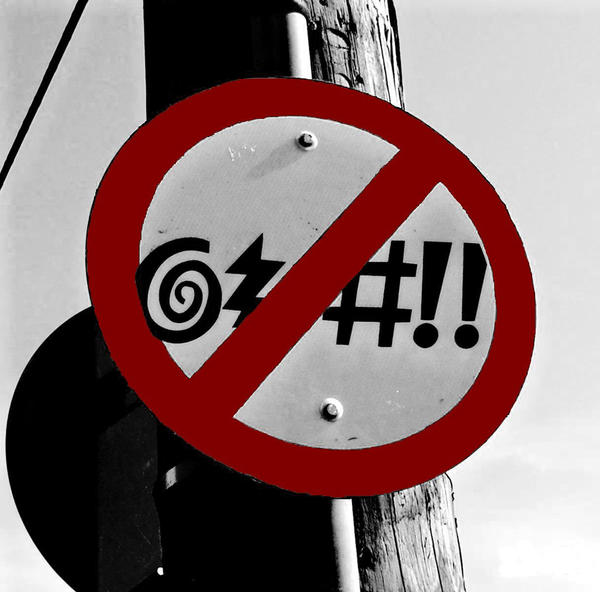 So now that I've proclaimed that, you can imagine that cursing in YA doesn't really bother me. The fact of the matter is, when I was in 9th grade I had the "foulest" mouth around. Seriously, sailors would blush at the things that came out of my mouth. As I grew older, I sort of grew out of that phase but it doesn't mean it didn't happen. So for me, teens cursing is just sort of natural because most people do it. I don't mind a character that doesn't because it is against their religion or they're scared what they're parents will say. But I think whether or not the characters curse is just another piece of information like whether or not they like breakfast for dinner.
So now that I've proclaimed that, you can imagine that cursing in YA doesn't really bother me. The fact of the matter is, when I was in 9th grade I had the "foulest" mouth around. Seriously, sailors would blush at the things that came out of my mouth. As I grew older, I sort of grew out of that phase but it doesn't mean it didn't happen. So for me, teens cursing is just sort of natural because most people do it. I don't mind a character that doesn't because it is against their religion or they're scared what they're parents will say. But I think whether or not the characters curse is just another piece of information like whether or not they like breakfast for dinner.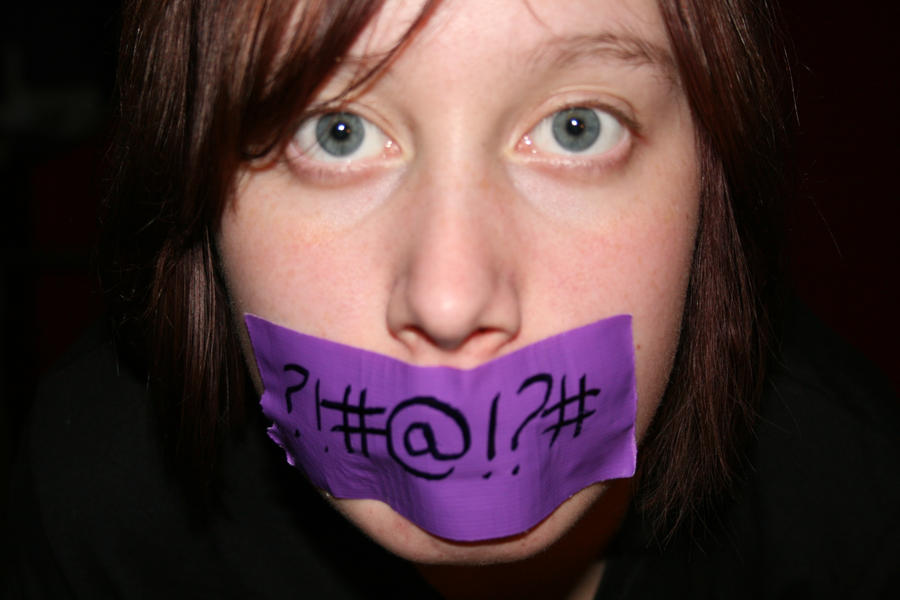 This is not to say that I would get into a book where there is a curse word flung around all the time just to be there. Frankly, most people don't talk that way anyway so I don't care to read it. If it's done for shock value, I definitely don't like it. But if it feels right and like it isn't being forced, then why shouldn't they curse? Especially if it is a character who would. The best example I can think of off the top of my head is Darkness Becomes Her by Kelly Keaton. Ari was raised by two bounty hunters and is an expert at finding and disabling people. Of course she is going to hear cursing on those adventures with her parents and her own adventures and it is going to effect the way she speaks. So I believe that she would curse a lot.
This is not to say that I would get into a book where there is a curse word flung around all the time just to be there. Frankly, most people don't talk that way anyway so I don't care to read it. If it's done for shock value, I definitely don't like it. But if it feels right and like it isn't being forced, then why shouldn't they curse? Especially if it is a character who would. The best example I can think of off the top of my head is Darkness Becomes Her by Kelly Keaton. Ari was raised by two bounty hunters and is an expert at finding and disabling people. Of course she is going to hear cursing on those adventures with her parents and her own adventures and it is going to effect the way she speaks. So I believe that she would curse a lot.However, like with sex, I feel like there needs to be some kind of warning label for books that curse a lot, a lot. I'm not talking about a "bloody hell" here or there after a major battle and the characters have nearly escaped. I'm talking about the characters that curse for whatever reason a lot. But then again, if you do this then people would have to define "a lot" which would get sticky so maybe I'm not for that label. I guess that is undecided for me because I can see it both ways. Authors and teens don't want to feel stifled by some label but I also think it's fair that parents know what their kids are reading. I guess that like I said last week, it'd be good if the teen section was split into two for the older audiences and the younger audiences.
It all boils down to the fact that I am "for" cursing in YA as long as it makes sense. Make cursing like pepper, just enough to give a hint of flavor to the novel.
What about you folks? Hell yes or heck no?
Want to suggest a topic or ask me a question?







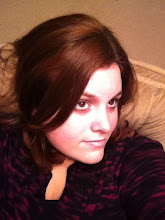



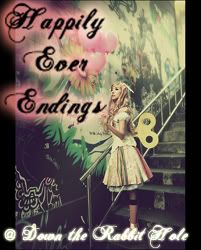

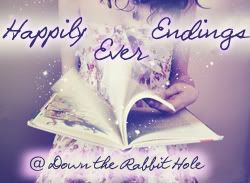
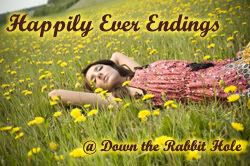
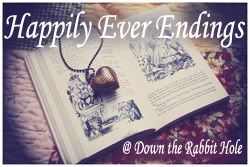
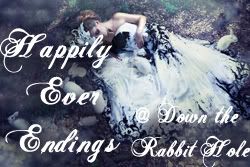








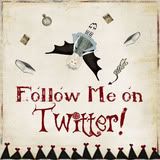
















I kinda wish there would be more cursing in YA. I am in no way a potty mouth but I swear more than almost every YA book heroine. If an author wants to write a book about teens for teens, than they need to write the way teens are. That means cursing, because we do swear.
ReplyDeleteThere shouldn't be cursing for the sake of it, but it makes books more believable when there are actual swear words around.
It's also funny that we can write about pretty much any topic (like violence) but stuff like cursing is considered too much or not appropriate.
I'm against the idea of labelling a book. If you're old enough to appreciate YA, you should expect there may be sex or swearing. If not, then maybe YA isn't right for you. I also don't like the idea of parents "choosing" which books are right for their kids, but that's a whole other can of worms.
So basically, I somewhat agree with you. :)
PE, I think cursing for the sake of cursing is lame but if it's right then I'm coll with it.
DeleteAs for labeling books, I think I'd prefer if there was like a 14 & up section on YA because some things I've read (I'm thinking like Swoon by Malkin) were way too young for my 12 y/o mind. SO not labeling like there is sex, violence and cursing but more like a split section. If you look at it this way, it'd help the older teens get something more geared toward them and the younger teens find the right books for them too.
I'm not sure if I like parents choosing books for their kids either but I also don't see anything wrong with parents wanting to be informed about what their kids are reading. Whether we like it or not, some parents just aren't going to give up that control and while I'm not saying I agree or disagree with it, it is still going to be there.
Thanks for your comment!
I agree with you. It is important that when an author is writing a character, that he or she has freedom to be true to that character. At the same time, curse words are like any kind of literary "bling" -- exclamation points, dashes, etc. You don't use one of those on every sentence and swearing can work the same way. If you use it when you need it, a nice balance can be struck between the power it has to give a character voice and the danger of it simply being overkill.
ReplyDeleteI also agree that there should be some kind of divide between younger and older YA so that parents can quickly gauge what their teen is reading. While I'm a lot older then the audience we're talking about here, parents *do* have a right to know this stuff if it matters to them. (To some by the teen years it still does and to some it *generally* doesn't.)
For me, when I *write*, it really boils down to character. Even within the same book I'll sit down as I get to know the characters and figure out who would say what in X situation.
I agree with you on the topic of cursing in YA. I really don't think it's that bad because let's face it teenagers do curse... a lot. Not all of them, but a fair share do. The only thing that bugs me is when every other word coming out of a characters mouth is a curse otherwise I could care less.
ReplyDeleteLike you, I don't really find cursing offensive, but I definitely know some people who do. I guess I don't really have a ton to say about this topic, because it's not something that I think about frequently, but I'd still be interested in hearing opinions from people across the board!
ReplyDeleteI am for cursing in YA, but like you said--it shouldn't be for "shock value". Frankly, I find "shock value" to get old fast... because I'm not shocked by it! :)
ReplyDeleteI don't like the idea of books having ratings of maturity on them, but DO think parents and librarians need to be able to know what is in a book. Whenever I review a book, I always mention what sort of thing is in it, what the cursing level, sex level, drug/alcohol, and even just frightening situations. You never know when a book might be picked up by an excited new 10-12 year old, ready to experience YA after all.
I DO however wish that there was a way of distinguishing the younger YA vs. older YA without it being "you have to be 12-15 to enjoy these/14-18 to enjoy these". Because no on wants to be made to feel like they're too old or too young to enjoy something. Maybe just a way of saying these books are... I don't know, "cleaner" seems to imply that others might be "dirty" and that's not always true. And "tough topics" might happen in a lighter book or a darker book... it will just depend on how it is handled in prose.
Obviously there is still a lot of work to do in the YA genre as far as organization and getting info out to readers!
I agree with your comments. I think when it's appropriate to swear, then have your characters swear. I disagree with authors who say that swearing is an indication of a limited vocubulary because it isn't at all -- it is indication that you are trying to make your dialogue realistic. In my writing, I have my characters swear when they are in very tense or perilous situations because it's simply what people do in real life. The amount of times I have read YA books -- and some of these have been by my favourite authors -- that I have sat back and thought 'oh please no teenager would ever say that'. As I myself am I teenager, I would know that no teenager, having just escaped a near-death experience would say 'That was close.' The reason we swear is because those words are purposely inflammatory - they provoke strong emotions in people, and that's precisely why characters, and people swear - to express intense emotions. However you have to be careful with it in books because it is especially emphatic when surrounded by fairly neutral narrative. I actually think that there is too much omittion of imprecations in YA. Really, it all ties in with a much bigger issue: that some YA authors are glaringly out of tune with teenagers and how they work these days. They are neither so stupid nor so intelligent as they make them out to be, in many cases. For instance, I have yet to meet a single person my age who walks around quoting classicist texts. And it's not just the authenticity of their character's language and dialogue that is sometimes off the mark but also their knowledge of adolescent social hierachies, fashions and etiquette.
ReplyDeleteFor me, I've almost always been against it. Swearing sounds kind of crude when you say the f word five times in every sentence. But like you said, it's not really that big a deal when it's a couple times after something major has happened. I understand a lot of teenagers swear like sailors, but it's not something I like to do. I liked your post because your opinion actually makes sense, and you're not doing it to be cool (like a few people I know). I also agree that in literature, if it comes naturally to your character then you should let them swear. Or at least put that they swore if you're uncomfortable with actually writing the words.
ReplyDeleteWhat a great topic for discussion. I struggled with introducing cursing in my forthcoming YA debut POLTERGEEKS. I remember how I was when I was fourteen (I'm 44 now) and I had a mouth on me that ... well, let's just say I was the king of the F-Bombs. But as a father, well, I guess as I wrote the book, I didn't use any foul language - I didn't think it was necessary. What I learned, though, is the book read like it was middle grade - my editor at Strange Chemistry Books convinced me that I needed to revise the dialogue to make it more genuine - and I guess that's sort of where my mindset is when it comes to foul language in Young Adult novels. It adds a degree of genuine nature to a book because that's how young people talked back in 1982 and here in 2012. They'll likely be cursing thirty years from now, too. Should the books have a warning label? I don't know ... there were no YA books when I was 14 so I read Stephen King and John Saul and even Mickey Spillane. In hindsight, I'm glad I added the foul language in POLTERGEEKS. I didn't go overboard with it, but I didn't use it sparingly either. I just added it where the dialogue required it and I hope that readers will connect with the characters and the story will resonate with them.
ReplyDelete